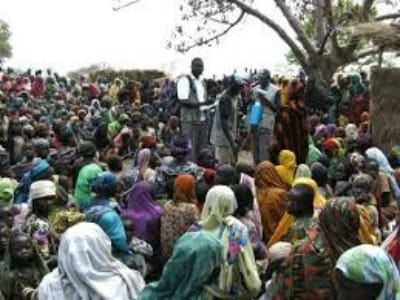According to the World Health Organization (WHO), they anticipate that more than 20,000 people could be infected with the deadly Ebola virus before it is brought under control and called for travel bans to be dropped across the continent, reports the BBC. In addition, another doctor has died of the disease in Nigeria, possibly exposing others.
RELATED: Ebola Kills in Congo, Doctor Receiving ZMapp Dies
In the announcement, WHO Assistant Director-General Bruce Aylward (pictured) made  sure to clarify that while they do not expect for 20,000 people to be infected, the likelihood of it infecting that many people remains.
sure to clarify that while they do not expect for 20,000 people to be infected, the likelihood of it infecting that many people remains.
“That’s not saying we expect 20,000… but we have got to have a system in place that we can deal with robust numbers,” Aylward added.
Aylward also admitted that this infection possibility had never been considered before now, “[The possibility of 20,000 cases] is a scale that I think has not ever been anticipated in terms of an Ebola outbreak.”
But the WHO’s ominous predictions unfortunately don’t stop there.
The number of people who have died in Liberia, Guinea, Sierra Leone, and Nigeria is 1,552 people, and it has been reported that 3,000 people have been infected with the disease.
Aylward told the press, though, that, that known figure is very likely wrong, with possibly four times the amount of people actually being infected.
“The actual number of cases may be two to four fold higher than that currently reported” in some areas.
The Problem with Travel Bans
In the wake of the aggressive Ebola virus, several countries have instituted travel bans against the aforementioned countries that have been stricken with the disease.
In addition to the Economic Community of West African States (ECOWAS), who are currently meeting in Ghana to discuss solutions to stopping the Ebola virus, the WHO are also calling on nations to stop their travel bans, because it is actually harming progress against Ebola rather than helping.
Officials at the Ecowas session backed the WHO’s call for flight bans to be ended and called for states to reopen their borders to make it easier for health workers to access affected areas.
Earlier Mr Aylward insisted bans on travel and trade would not stop the spread of Ebola, saying they were “more likely to compromise the ability to respond.”
Doctor Dies Outside Lagos
An unnamed doctor who reportedly treated a “primary contact” of Patrick Sawyer, the Liberian responsible for spreading the Ebola virus to Nigeria, died this week in Port Harcourt, according to the Nigerian Minister of Health Prof. Onyebuchi Chukwu.
Unfortunately, after Sawyer collapsed at Lagos airport on July 25th, 13 people who came in contact with him or treated him also became infected with the virus.
In addition to the doctor’s wife who is said to be showing Ebola symptoms but whose tests results aren’t developed yet, the doctor reportedly came in to contact with 70 other people.
They are now all under surveillance in Harcourt, which is the center of Nigeria’s oil industry.
Both the wife and the deceased doctor bring the Ebola infection count in Nigeria up to 15, with seven being rehabilitated and discharged and six dead.
Meanwhile, the WHO’s plan of action against Ebola involves spending $489 million over the next nine months with an international staff of 750 workers and a national staff of 12,000 in West Africa.











